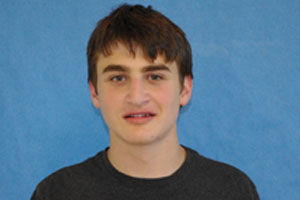If a British and an American child were asked, “Who is Chris Lilley?” the British one would most likely name you a character like Mr. G, an ostentatious drama teacher, or Jonah Takalua, a mischievous boy from Tonga, both of whom are both characters played by Lilley in his previous series Summer Heights High. A child from the United States on the other hand, would probably never have heard of the award winning Australian comedian; nevertheless, Lilley has finally started to generate considerable domestic acclaim with the introduction of a second mockumentary show for American viewers: Angry Boys.
The show, aired Sundays at 10:00 p.m. on HBO, mostly revolves around Daniel Simms (an idiotic, self-proclaimed “cool dude”), Nathan Simms (the overly rebellious, nearly deaf identical twin of Daniel), and Gran (the socially unorthodox grandmother of Nathan and Daniel who works as a guard at an Australian juvenile detention facility). Each one is played by Chris Lilley himself, who embarrasses Adam Sandler and Eddie Murphy with his ability to simultaneously portray alternate characters. The portrayals are brilliantly ironic.
Angry Boys is funny because each character has some defining paradox of which they are totally oblivious to. For example, Gran is portrayed as a stern, powerful guardian of juvenile delinquents, who also happens to collect guinea pigs as a hobby. And the rapper S.mouse, introduced in the second episode, has convinced himself that he is a hood-bred gangster, even though he grew up as a rich, suburban child.
But beyond the individual merit of each character, Angry Boys often falls flat with its seemingly incoherent plot. Characters are introduced without being well-connected or related to the overall story; it takes half an hour in the first episode to find out at why Gran is relevant, and nearly two episodes to do the same for S.mouse. At times, the show feels more like Saturday Night Live than a sitcom.
Despite fans who maintain, as the Herald Sun put it, that Lilley “is turning a focus on to controversial issues – not exploiting them for a cheap laugh,” Angry Boys is often vulgar in ways that would suggest otherwise. This is especially true when it comes to Daniel and Nathan Simms, the characters given the most airtime.
Daniel consistently comes off as more of a pompous jerk than funny when interacting with his generally silent brother. It is much harder for Lilley to get away with being satirically homophobic and politically incorrect when he is being unfunny; there is rarely a punch line to Daniel’s offensive comments.
Ultimately, Angry Boys is worth watching because of its complex, and generally funny individual characters. Their paradoxes, anguish, and flamboyancy; their ambiguity, is what carries the show. As long as you don’t watch the show next to Gloria Allred or some other person who demands political correctness, you will gain at least some appreciation for Lilley’s creation.













































